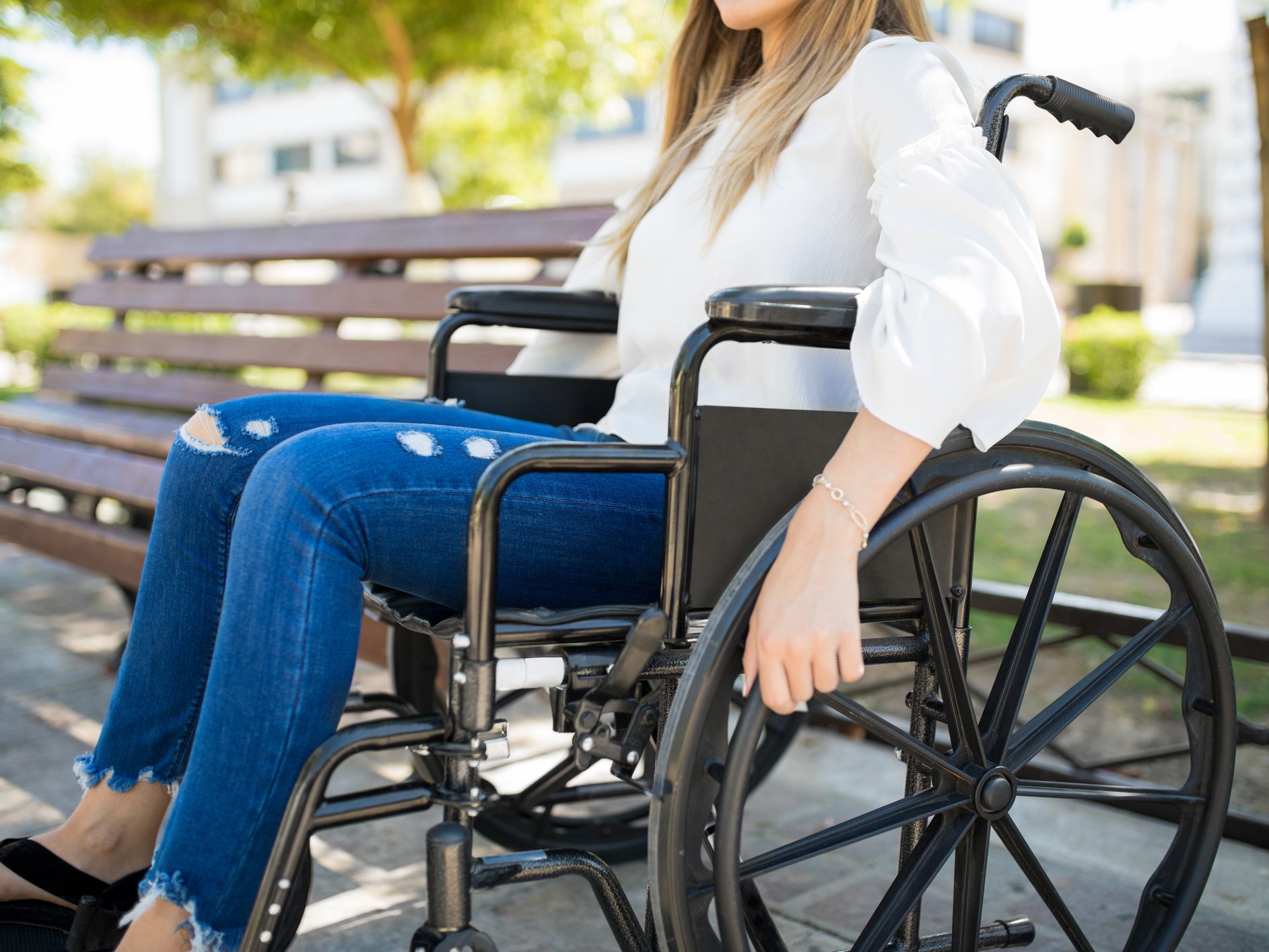Two thirds of women with physical disabilities unable to attend cervical screenings
‘It is not acceptable that women with a physical disability are often faced with additional hurdles or even being denied access to this potentially lifesaving test’

More than 60 per cent of women who have a physical disability say that they have been unable to attend smear test screenings due to their condition, a study has found.
New research released by Jo's Cervical Cancer Trust has revealed the extent to which women who have physical disabilities are discriminated against when attempting to undergo cervical screenings.
The charity surveyed 335 women for the investigation who have health conditions including spinal muscular atrophy, Ehlers-Danlos syndrome, paraplegia and cerebral palsy.
According to the study's findings, 88 per cent of the participants felt that it is more difficult for a women with a physical disability to attend a cervical screening.
Meanwhile, just under half of the participants said that they had purposely chosen not to attend a smear test because of a negative, past experience they'd had due to their disability.
Of the women assessed, 23 per cent said that they would need a hoist in order to be helped onto a GP's examination bed.
However, just one per cent of those questioned said that their GP provides them with the essential equipment for their appointment.
The study also highlighted the misconceived notion that people with physical disabilities are not sexually active, with one in five of the women stating that this misconception had been made about them.
Furthermore, the report discovered that some women with physical disabilities were asked to sign waivers saying that they did not want a smear test.
Robert Music, chief executive of Jo's Cervical Cancer Trust, expressed his dismay over the way in which many women with physical disabilities are deterred from attending their cervical screening appointments.
"I am shocked by the inequality that exists in accessing cervical screening across the UK," Music said.
"It is not acceptable that women with a physical disability are often faced with additional hurdles or even being denied access to this potentially lifesaving test."
Music added that it is "worrying to see the level of stigma that exists regarding sex and disability".
Further statistics released by the charity revealed that more than a fifth of the women who are unable to leave their home due to their physical disability are not offered the option of a home visit by their GP.
Moreover, 40 per cent of the participants said that they don't feel GPs or nurses take their needs seriously, while 45 per cent feel their needs are neglected.
Dr Hannah Barham-Brown, disability and gender equity advocate, GP trainee, speaker and media commentator, said that the study "represents a vital area of work that is all too often forgotten".
"The challenging practicalities of providing healthcare for disabled people mean that basic access to services such as cervical screening is sometimes being denied," Dr Barham-Brown stated.
"We have an under-resourced and understaffed health service, however clinicians must be funded and supported in order to provide the care that patients deserve."
According to disability charity Scope, 19 per cent of working age adults in the UK have disabilities.
Cervical screenings prevent 75 per cent of cervical cancer cases from developing, Jo's Cervical Cancer Trust states.
However, cervical screening attendance is currently at its lowest point in 19 years in England, and its lowest point in Scotland and Wales in 10 years.
For Jo Moss, who has myalgic encephalomyelitis and fibromyalgia, it took eight years of trying to book a smear test before she was able to have one.
"My condition means that I cannot sit or stand for more than five minutes without pain or dizziness and I am therefore unable to leave my bed," Moss said.
"I assumed that because I was able to get home appointments for injections or dental care that it would be just as easy to organise a home visit for screening. I was wrong."
For more information about what happens during a cervical screening, click here.
For more information on smear tests you can call Jo’s Cervical Cancer Trust's free and confidential helpline on 0808 802 8000.
Join our commenting forum
Join thought-provoking conversations, follow other Independent readers and see their replies
0Comments